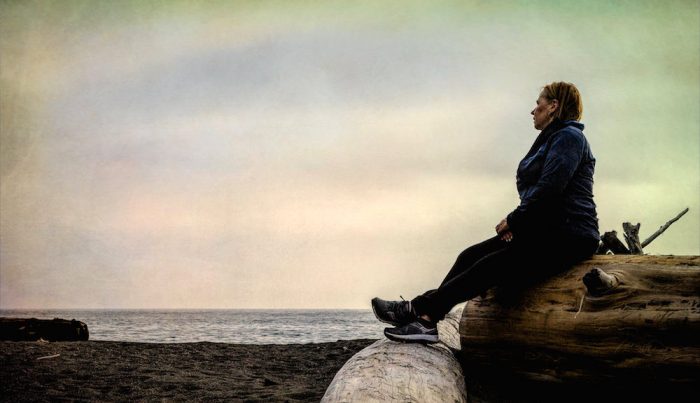“There are no words to describe this loss,” says the card my friend sent me after my mom died.
I notice I’m nodding while I’m reading it.
In time, I will realise this is one of the few clichés that are hitting home for me.
At this moment, the beginning of my process of grief, this sentence addresses the feeling that my experience of grief has already changed before I’ve got the time to describe it. Later on, it will match the idea that this is an experience that goes beyond words. Another thing I realise while reading the cards people sent me is that there are many things people say and clichés we use when speaking about loss and grief that are not helpful at all, or even harmful, in the worst case.
What makes the things we say to someone who is experiencing grief so harmful? I started wondering. The first months or maybe even years, I had no energy left to look into this, as I was trying to live with the loss of my mom, whom I had taken care of for such a long time. Only years later, there emerged space again, space emerging like the seasons (who has never been caught by surprise when all of a sudden spring is there again?). I started to sense the root of the problem of the harmful things people say. That’s when I decided I would make sure other people won’t have to deal with this aspect of grief, as this is something that can be fixed.
Grief itself is something that cannot be fixed. Grief is a natural response to loss. In our Western culture, we see grief as a disease and a problem to be solved, and that’s reflected back in our language. For example, we say we have to overcome grief. As we see our loved one struggling, we like to help, give advice, and solve problems.
But here’s the thing with grief: there is nothing to overcome, nothing to fix. Loss gets integrated, not overcome. That makes a big difference, in the things we say and the things we do. It means we need to tend to our pain. That is something we are not used to.
I remember I felt the very human urge myself to take away the pain I saw my sister was living through, as it hurt me as well to see her in pain. I knew saying something like “Think about all the beautiful memories” would not help. From firsthand experience, I knew she only needed me to be there. To bear witness to her pain. To listen, acknowledge, and, eventually, prepare a bowl of soup, which we then ate in silence. Nothing to do, no advice (where she didn’t ask for it) to give, with nothing to distract us. Just bearing witness to the pain.
Someone who embodies this new approach to grief is the American psychotherapist Megan Devine, who wrote the book It’s OK that you’re not OK – Meeting Grief and Loss in a Culture That Doesn’t Understand after her husband Mat drowned before her eyes. In this book, she interweaves her personal experience with a cultural analysis, and she isn’t scared to touch upon the darker parts of grief like not wanting to live anymore (which should not be confused with being suicidal). She’s precise with her words and writes with enormous subtlety and nuance. She’s the woman who calls clichés like “be grateful for the memories” a slap in the face. Yes to that! She writes: “The wrong word choice grates on me, even in the best of times. So when I was first widowed, hearing words like recovery and better really bothered me. Getting better sounded ridiculous. Exactly what was going to improve?”
Reading her book and hearing a different story about grief that isn’t about a happy ending (or at least not how they are framed in romantic comedies) and that expresses the ambiguity of living with loss felt like a big relief. It felt like a mirror. That’s exactly what Devine needed after her husband died: “What I would have given to see my reality reflected back to me.”
Devine states that we need new stories that tell the truth about grief. It’s one of the forms of support we have to offer each other. Not in a sense like: “Yes! I know what you mean, I have experienced the same…” at which we take off with telling our own story of loss. But in a way that we develop a sense of what an integrated loss could look like. Or a way a storyline could develop if there is not going to be a “happily ever after.” Examples of how to live with loss.
So, we need more stories to live into, which has to do with something like a plotline and giving meaning to experiences. But still, I would feel I lacked the words to describe my experience of grief. That’s when I bumped into the blog of John Koenig, a video-editor and writer from Minnesota. He is the creator of “The Dictionary of Obscure Sorrows,” a blog for experiences we don’t have a word for yet. Against all odds, “sorrow” doesn’t appear in his dictionary. Also, “grief” and “bereavement” give zero hits. Only the more general “sad” gives 11 hits.
I started collecting experiences myself and making a word file. By paying more attention to my experiences and bearing witness to my pain, I started to develop a sense of experiences I wanted a word for. For example, last year on the day my mom died, I forwarded a newsletter of Devine to my father and sisters. She pointed my attention to an aspect of grief that I was, until then, unable to grasp.
She wrote:
“What I mean is that, for many of us, the people we’ve lost were such an integral part of every single day, every single facet of our lives, there really is no ‘normal life’ without them. There is no part of our universe, our daily lived existence, that they didn’t touch. There truly is no life to ‘get back to.’”
This is an experience that needs a word, as I feel like that would help our understanding of grief and the stories we tell.
So, here I find myself, working on a Dictionary of Loss and Grief to describe the landscape of loss.
If you feel like sharing any of your experiences of loss and grief with me, please reach out. We can explore the experience together and come up with a word for it; I would totally be up for that.







Read 2 comments and reply